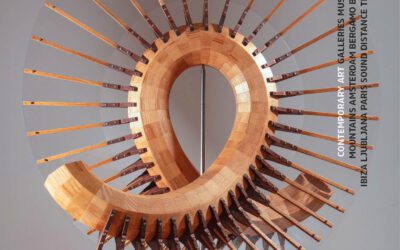Different Class Radio is an internet radio station that slips quality under the commercial radar, discovering new talent, and bringing a critical focus to past masters on the verge of obscurity.
More than simply a showcase for people with musical projects of their own, DCR finds presenters with a passion for music and a messianic need to get people the good stuff.
DCR has featured some spectacular interviews with music’s pioneers such as Simon Bonney from Crime and the City solution as well as then unknowns The XX and has successfully built a listenership of rabid music lovers. Impressed, Trebuchet discussed the radio stations big picture with the main man Liam Turner.
Trebuchet: So how did DCR radio start?
Liam Turner: I’ve always wanted to work in radio but at the same time I’ve never wanted to compromise what I think radio should be. I was in New Zealand and I found out that at time you didn’t need a license to broadcast so in a sense Different Class Radio started there. I saw a gap in the radio market for real quality radio that showcases great new music as well as playing great stuff from the past.
Trebuchet: and when?
Liam Turner: DCR started in September in 2008 with three DJs including myself its now 2011 and we’ve got 10 DJs doing regular shows. The important thing for me has been keeping the focus on what we want it to be. No matter what, we want focus on forward sounding music, both from now and from the past, music that isn’t being played anywhere else.
Trebuchet: Do you research music or just play favourites?
Liam Turner: Well people send us a lot of stuff, so that’s the main way we find out about new genres and bands. It’s really good to see that bands are so proactive in getting their stuff out there rather than wait for a record company to do it for them.
Trebuchet: New Genres?
Liam Turner: Yeah the post-dubstep genre is fantastic at the moment but in general there isn’t anything going on genre wise in popular music. A particularly great track at the moment is the Jamie XX’s stuff with Gil Scott Heron.
You know we have one of Jamie XX’s mixes from a couple of years ago on the site which I still think is pretty great. At the time no one had heard of the XX but when we saw them at a small show they had that thing. I mean they just seemed great even in front of 20 people or whatever and so it’s not surprising that now they’re huge.We asked Jamie for a follow up but his management were against it. In fact they’ve asked us to take the mix down since he’s releasing a mix album soon.
Trebuchet: And did you?
Liam Turner: Nah. That’s been pretty important for us. Finding people before they get big and telling people about them. But as you know we also do more historical stuff and play lesser known but great stuff from bands like CAN and Tangerine Dream. Each DJ has their own diverse interests really, I’m into dance music myself.
Trebuchet: How do you put the shows together? Themes?
Liam Turner: Sort of. It’s more of mix really. You mix from a mood and then go from there, ideally seamlessly.
Trebuchet: How do you publicise DCR?
Liam Turner: We use facebook and our newsletter mainly. We’re getting into twitter and all that, but a lot slower than I’d like.
Trebuchet: What are you plans for the future?
Liam Turner: Ideally we’d like to get a dedicate space to run DCR from. At the moment everyone produces their shows at home. But that also the great thing about the internet is that we can have DJs from anywhere. It would be great to have shows from America, Australia and in Europe, perhaps even further afield.
Trebuchet: I can’t imagine the guys get paid much to do it, how do you keep people motivated.
Liam Turner: It’s easy in a way. I mean everyone is doing it because they love it. Whatever it is, if people are doing it for the love of it then it’s easy.
The importance of outlets like DCR is in more than just providing a platform for ‘new’ music but also a serious intent to champion things with integrity. After the interview we discussed some of things in the pipeline for DCR and it became clear Liam fully intends to take the shows on the road, reaching people and communities that are generally overlooked by London-centric media.
The editorial freedom that producers like Liam have is vitally important in keeping free criticism separate from the commercial interests of the music industry. His main issue at the moment is matching his enthusiasm with the a basic need to make DCR support itself and how this separate but related relationship with the industry will manifest over time remains to be seen. In the meantime stay tuned and check out some of the fine and informed sounds of Different Class Radio.
Interview 25th January 2011.
Illustration by John Close.

The aim of art is to represent not the outward appearance of things, but their inward significance. – Aristotle















